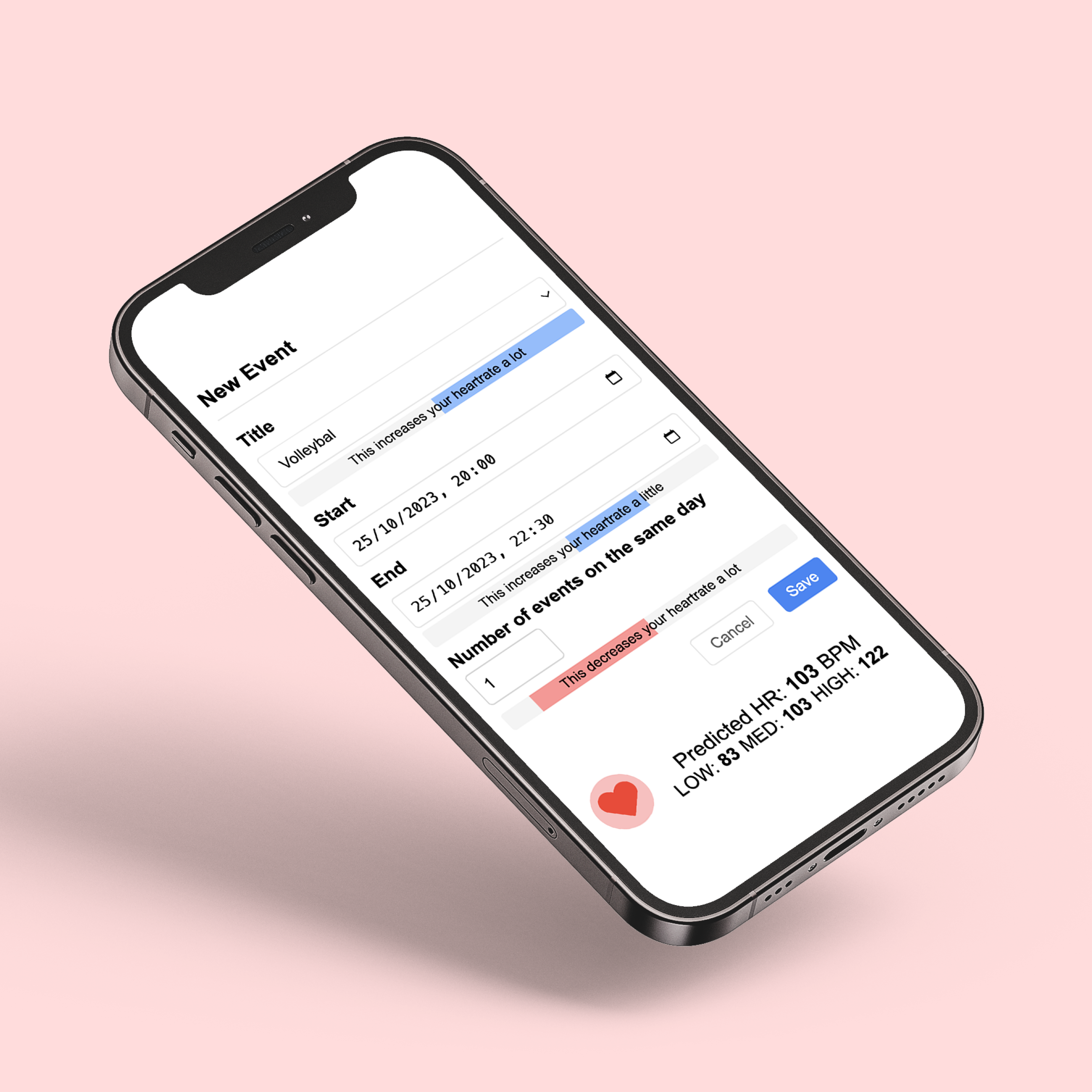CardioCalendar
What?
Recent literature illustrates a growing call for more personal and reflection-based Personal Informatics systems. However, current designs often don’t yet adhere to this. This paper addresses this gap by designing the CardioCalendar; a calendar extension that predicts future heart rates through a neural network based on calendar data. The tool utilizes a Digital Twin and explainable AI approach to foster exploration and stimulate reflection. The final model can predict heart rate with a mean absolute error of 7.35 BPM. Although this accuracy is moderate, the CardioCalendar can be seen as a valuable case study for recent frameworks for designing personal informatics systems.
What did I contribute?
Brainstorming and ideation
UI/UX design
Data exploration
Machine Learning in python
Developed skills
Using pandas and machine learning in python
Interactive prototypes in Figma
Presenting
What were my main takeaways?
I learned about non-judgemental interfaces and how to design for them, which requires a different approach than more traditional solution-focused approaches.
I learnt how to handle big and hetegenerous sets of data. Since we used calendar data, not all data was numbers, which means we had to come up with certain ways to make the word-based data numerical for predictions.
I learnt how to use and apply various machine learning models, like linear support vector machine, and artificial and convolutional neural networks.
